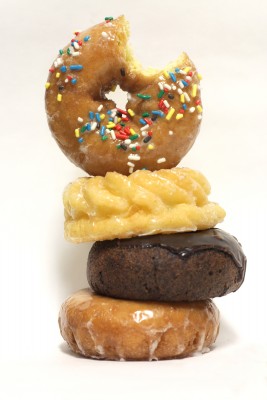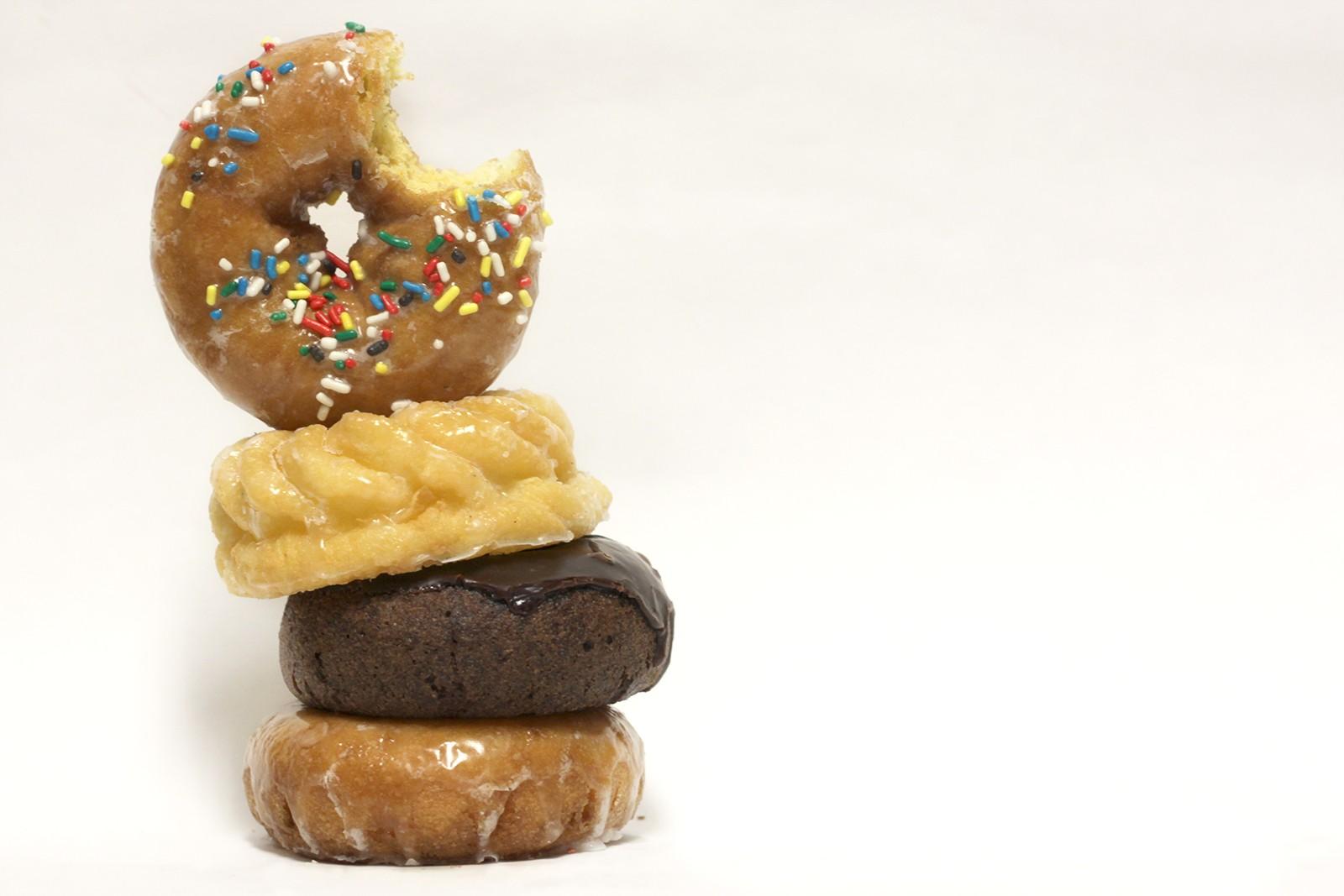
People often indulge in delicious meals just for the sake of tasting the food. It is less likely, though, for those people to consider the reasoning behind why such a meal brings them pleasure. In “Thinking about Flavor,” the first installment of the 2015 Science and Cooking lecture series at Harvard University on Monday evening, “Cooking Issues” podcast host Dave Arnold and “The Curious Cook” author Harold McGee sought to answer this question by discussing what exactly makes food, scientifically, taste so good.
Arnold and McGee kicked off the lecture by distributing goodie bags to those in attendance at the Harvard Science Center lecture hall. In addition to well-known candies such as Hershey’s Kisses and Starburst, each bag included a mystery tablet. The pill, of sorts, was made from an herb originating in India that had the power to dismiss sweetness in the mouth for a short period of time. The audience awed at the new candy while chewing, experiencing a new kind of flavor. Rather than the expected sweet flavor, the candy instead had a strange, sand-like flavor.
After surprising the audience with the palate distorter, Arnold took the audience’s attention back in time and proceeded to introduce the beginning of the flavor industry as a “key moment in scientific history.”
“[The science of flavor] came to be at the same time as organic chemistry,” he said. “It all comes from an idea that a flavor you have in your head is related to a molecule. Food is nothing more and nothing less than a complex structure of molecules.”
According to McGee, and evidenced by emerging fields such as gastrophysics and even Darwinian gastronomy, there is now more interest in the science of food than there has ever been before. However, due to these fields’ need for quick insight, some of the circulating research has not been entirely supported by science.
While correlations have been made and data has been published regarding various foods and science, McGee said he continues to work to debunk much of that false research. At the lecture, he said the matter boils down to the creativity of the chefs and food specialists involved in making the food appealing. Hypotheses regarding flavor pairings and pathogen activities provide insufficient evidence on the deeply complex subject.
Fiona Harrigan, a sophomore in Boston University’s College of Arts and Sciences, was startled to discover the data’s inaccuracy. She also agreed with McGee’s notion that there needs to be more collaboration regarding this phenomenon.
“I was surprised to learn that there isn’t a lot of research on taste in a culinary context, and that there is a lot of pseudoscience surrounding the subject,” Harrigan said.
As the lecture went on, more optimistic information regarding the science and food phenomena surfaced and Arnold elaborated on his next project, the Museum of Food and Drink in New York. The Brooklyn-based institution will feature a series of sensory exhibitions, each focusing on specific aspects of food. The first exhibition, set to open Oct. 28, will focus on examining flavors and the food industry through lenses of science, culture and history.
“Food as a subject deserves a museum on par with a natural history [museum like] the Smithsonian,” Arnold said. “If you try to tackle all the aspects of food at once, you are bound to fail.”



























































































































